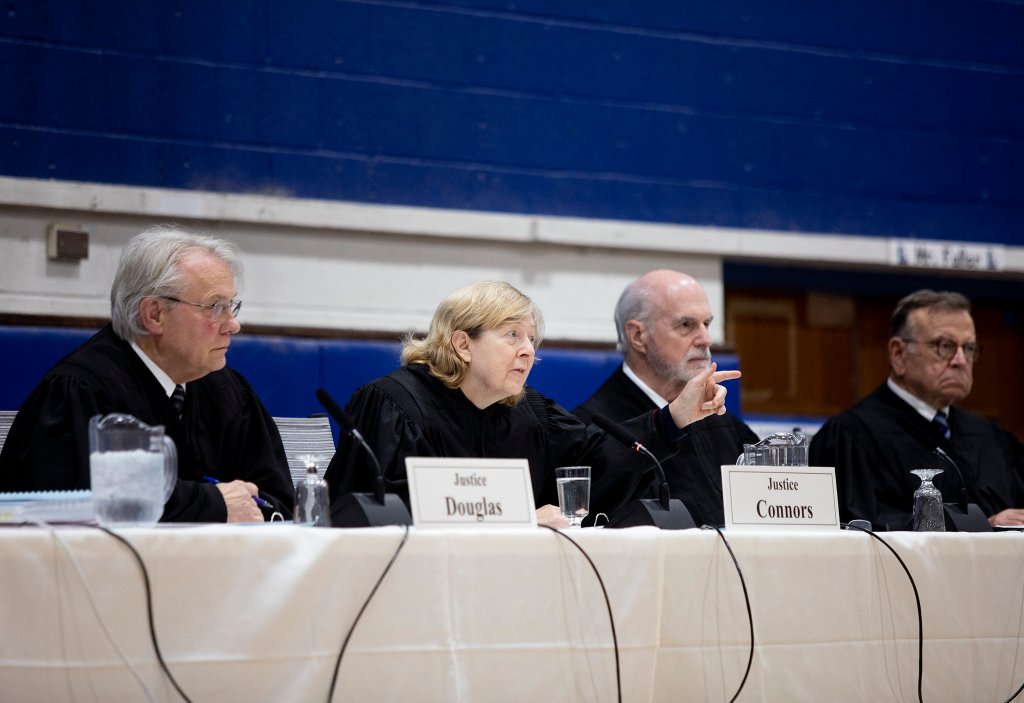Maine Supreme Court Justice Faces Unprecedented Ethics Violation Recommendation
In a significant and potentially precedent-setting move, the Maine Supreme Judicial Court is grappling with the recommendation to discipline Justice Catherine Connors for an ethics violation. This situation marks a rare instance in which a justice from Maine’s highest court has faced such scrutiny, raising important questions about judicial accountability and the integrity of the court system.
Justice Connors, who was appointed to the Supreme Judicial Court by Governor Janet Mills in 2020, is under fire for allegedly violating the Maine Code of Judicial Conduct. The state’s Committee on Judicial Conduct found that she participated in two cases that not only overturned recent legal precedents but also weakened protections for homeowners struggling with mortgage payments. Given her previous experience as an attorney representing banking interests, critics argue that Connors should have recused herself due to a clear conflict of interest.
The complaint against Connors was filed by prominent foreclosure attorney Thomas A. Cox, who contended that her involvement in these cases compromised her impartiality. According to the judicial conduct code, judges must step aside from cases where their impartiality could reasonably be questioned. John McArdle, counsel for the committee, emphasized that Connors’ actions not only breached the code but also undermined public confidence in the judiciary.
A Rare Occurrence in Judicial Discipline
It’s important to note that sanctions against judges are exceedingly rare. Dmitry Bam, vice dean and provost of the University of Maine School of Law, pointed out that nearly 99% of judicial complaints are dismissed without any action. Since 1998, the Committee on Judicial Conduct has reviewed over 1,000 complaints, but only four judges have faced disciplinary measures. The fact that Connors’ case has progressed this far is notable and could set a new standard for how such matters are handled in the future.
Maine’s judicial complaint process is notably secretive, with details only becoming public if the judge requests it or if the committee recommends discipline. This lack of transparency contrasts sharply with practices in many other states, where hearings are often open to the public from the outset.
Potential Outcomes and Implications
While the committee has recommended sanctions, it’s unlikely that Connors will face severe penalties. Maine is one of only six states that does not allow its Supreme Court to remove a judge for unethical conduct; only the Legislature has that power. Possible sanctions could range from a public reprimand to suspension, but removal from the bench is off the table.
Legal experts are closely watching how the Supreme Judicial Court will handle Connors’ case, as it will be decided by her fellow justices. This raises concerns about potential conflicts of interest, as the same rules that Connors allegedly violated apply to her colleagues. The American Bar Association has cautioned against allowing a court to discipline its own members, citing the inherent risks of bias.
Looking Ahead
As the situation unfolds, many are calling for an independent body to oversee judicial ethics issues, arguing that it would enhance accountability and public trust. Ryan Williams, a criminology professor at the University of New England, noted that the close relationships among justices could complicate the proceedings. “These are justices who have grown up on the Supreme Court together,” he said, highlighting the challenges of impartiality in such a collegial environment.
Ultimately, the outcome of this case could have lasting implications for judicial conduct in Maine and beyond. As the Supreme Judicial Court prepares to address the committee’s recommendation, the eyes of the public and legal community are firmly fixed on how they will navigate this uncharted territory.



